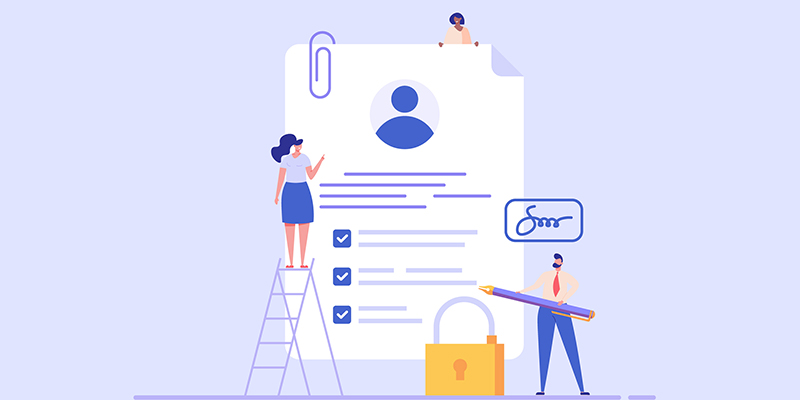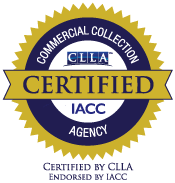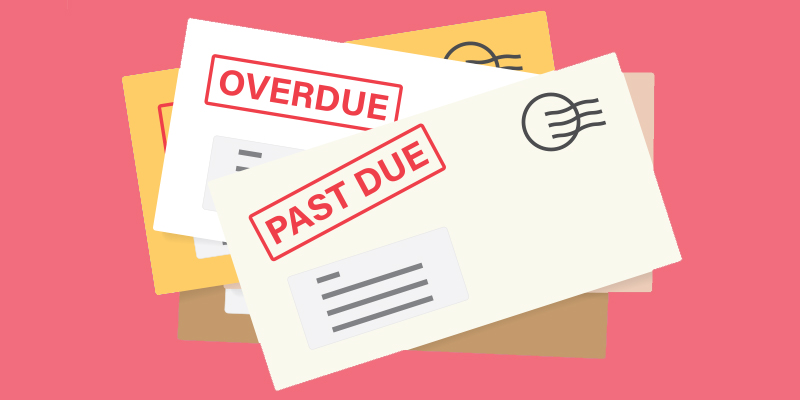Growing a new company isn't for the faint at heart. Employees must be passionate, willing to go the extra mile, and work long hours as part of a cycle of endless expectations. With so many American employees complaining of burnout and "quiet quitting," startups are facing the same struggles as enterprise companies.
Recent Posts
When selling your goods and services to another business, it's wise for both parties to sign a legally-binding agreement. This agreement will set expectations for both parties as well as provide proof of the arrangement if one of the parties doesn't come through. A contract is an invaluable record that you and your business client are willingly working together.
Protect your business by including these B2B contract terms.
Enterprise Recovery LLC was introduced in 2016 in response to our business clients' requests for industry-focused commercial debt collection. Since then, our company has vowed to help our clients recover bad debt, increase accounts receivable collections and review any potential legal action against their customers. We take this job very seriously and promise to adhere to the strictest standards and regulations to protect our clients.
Enterprise Recovery, LLC is proud to obtain its CLLA Certified Agency status from the Commercial Law League of America.
If your organization is facing slow cash flow, accounts receivable management may be the problem. Every invoice starts in accounts receivable so it's important to manage the procedures to reduce delinquent payments. Let's look at some efficient A/R practices to get you paid.
How does accounts receivable increase collections?
Businesses have had to run leaner in recent years - something that startups know all about. A lean business is one that maximizes value with its resources and minimizes waste. People, money, and time are the most valuable resources in organizations. Maximizing time saves money and encourages your workforce to feel as if they're giving their best to their jobs.
Here's how your business can stop wasting time.
As a business owner or accounts receivable specialist, you may have some fear around sending an account to a debt collections company. For one thing, you're entrusting a third party with your client relationship and your money and facing potentially unexpected costs. You may also have heard some really bad things about debt collections. Enterprise Collections LLC has been helping our clients recover debts for years, and we're happy to answer questions and ease any uncertainty.
Read further as we debunk the fears around using B2B debt collections to get you paid.
If you're asking the question, you're likely dealing with a scenario of non-payment from a client and would like to avoid litigation. Simply put, a demand letter (or more than one!) is sent to your clients to inform them of your intention to collect what is owed to you. The letters are typically sent in conjunction with other first-party collection efforts before escalating the account.
Read more to learn more about collections demand letters.
Being a leader in a tough economy means staying positive, no matter what. Inspiration can be hard to come by, but it's necessary to motivate those around you. Allow these quotes to encourage you to push past the tough times and create a wave of possibility.
Here are 10 of the Best B2B Leadership Quotes to keep you motivated.
In simple terms, accounts receivable management is the means for collecting money that is owed after extending credit for or agreeing to provide goods and services. During downturns in the economy or when otherwise strapped for cash, businesses typically have working capital trapped in receivables that are unpaid or not paid on time.
Use these tips to rescue your business cash flow with accounts receivable management.
The process of collecting what's due from customers can go by several names. Accounts receivable, receivables, A/R, accounts receivable collections, debt collections, and more.
(Not to be confused with accounts payable, which is a different part altogether.)
Many of these terms are not interchangeable but actually define different levels or areas of the process of collecting payments.














